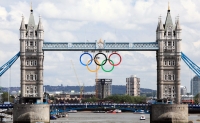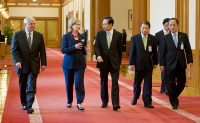Culture Posts: Olympic Pageantry of Symbolism
As all eyes turn to London in the coming weeks for the Olympics, a pageantry of cultural symbolism will be on display. Sometimes the most important messages in public diplomacy are the unspoken, symbolic ones. Anthropologist Edward T. Hall called it looking for the “eloquent cues.”
London may be the focus of public diplomacy attention and reap the greatest benefit; however, all countries are likely to seize and squeeze what public diplomacy mileage they can when the international spotlight shines in their direction. When you watch, watch for the cultural cues. Read More









